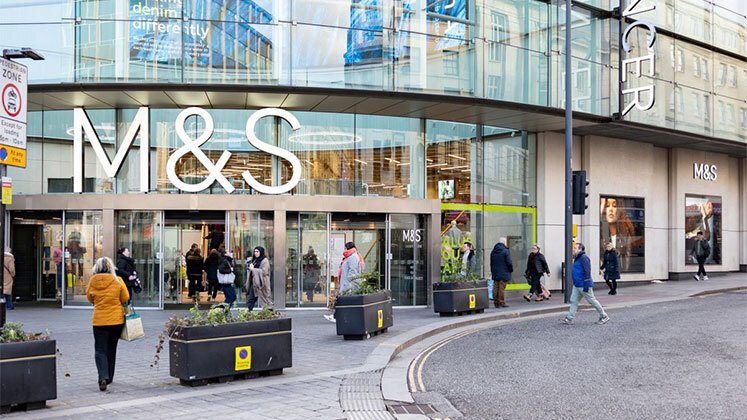
Marks & Spencer (M&S) has unveiled a new supply-chain decarbonisation initiative, RE:Spark, in partnership with global energy-technology firm Schneider Electric. The programme aims to accelerate the adoption of renewable electricity across M&S’s fashion supply chain and forms a key part of the retailer’s sustainability ambition under its Plan A strategy, which targets net-zero value-chain emissions by 2040.
As part of the programme, M&S and Schneider Electric will launch a centralised digital portal, powered by Schneider’s Zeigo Hub, where suppliers can submit emissions data, monitor decarbonisation progress and access learning resources. Additionally, the partners plan to hold regional webinars and market briefings in five key sourcing regions — Vietnam, Turkey, India, China and Bangladesh — to help suppliers understand how to procure renewable electricity.
M&S will also provide strategic advisory support to its suppliers, helping them explore clean-energy solutions such as on-site solar, green tariffs, energy attribute certificates and power purchase agreements (PPAs). Crucially, smaller suppliers will be able to aggregate demand through multi-buyer cohorts to access PPAs at scale.
The initial rollout of RE:Spark will focus on “high-impact” regions within M&S’s supply chain over the course of the next three years.
Katharine Beacham, Head of Sustainability and Materials for Fashion, Home & Beauty at M&S, said the company believes “sustainability should be embedded in everything we do, from how we source products to supporting our supply partners … to do the right thing.” She added that by acting as a facilitator, M&S hopes to help its suppliers “build networks and resilience for the long term – sparking a movement of change across the industry and beyond.”
Steve Wilhite, Executive Vice President of SE Advisory Services at Schneider Electric, described RE:Spark as “a powerful example of how collaboration can drive scalable, impactful change across global supply chains.”
RE:Spark also builds upon M&S’s existing environmental and circularity efforts. It complements the retailer’s “Another Life” circularity initiative, which encourages reuse, repair, recycling and resale of fashion, home and beauty items.
Through this initiative, M&S aims to support its suppliers in overcoming barriers to clean energy adoption, thereby strengthening both environmental performance and long-term resilience across its global operations.






